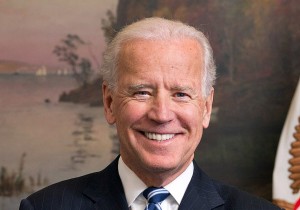“We glimpsed at least one note from a ‘Dr. Jill’ allowing the president to participate in a strategy session.”
 Vienna, February 14 – Negotiators on behalf of Ayatollah Ali Khamenei expressed anxiety today in a message to Teheran that the US president’s mental decline might impair or undermine negotiations over the Islamic Republic’s pursuit of atomic weapons, in particular that his diminishing cognitive capacity will consign any progress from one day to the next to oblivion, forcing the negotiating teams to cover the same points again and again.
Vienna, February 14 – Negotiators on behalf of Ayatollah Ali Khamenei expressed anxiety today in a message to Teheran that the US president’s mental decline might impair or undermine negotiations over the Islamic Republic’s pursuit of atomic weapons, in particular that his diminishing cognitive capacity will consign any progress from one day to the next to oblivion, forcing the negotiating teams to cover the same points again and again.
A leaked communiqué to the Supreme Leader from his representatives in the Austrian capital, where Iran and various powers are attempting to reach agreement on the scope of the Islamic Republic’s nuclear program, contains multiple instances of the negotiators’ worries over Joe Biden’s possible dementia or other age-related, memory-compromising condition, in that such a condition effectively erases any concessions the negotiators have extracted from the US during the previous session. The concerns emerged following multiple consecutive meetings in which US negotiators struggled to conceal that their instructions included statements by Biden that he would have to consult with President Barack Obama, since he, Biden, was only vice president.
“We glimpsed at least one note from a ‘Dr. Jill’ allowing the president to participate in a strategy session,” the communiqué read, in part. “Requests for us to restate our position from the previous day – in effect, from several weeks ago, since this futile exercise must take place every day – now form a routine element of the proceedings, and we find ourselves rehashing the same points, all, apparently, in keeping with the updates requests and instructions from the White House.”
The message from the Iranian negotiators also acknowledged that some of the difficulty stems from American negotiators jumping ahead to offer concessions that the Iranians have yet to demand, a move that both confuses the latter and raises suspicions that the Biden administration does not take the talks seriously. That possibility prompts worries in Teheran and Vienna that the US acknowledges any concessions it makes will face cancellation as soon as a Republican successor assumes the presidency in January 2025 – a prospect that the Biden administration’s disastrous decisions have only made increasingly likely – because Biden lacks the Congressional support necessary to secure a lasting American commitment to whatever deal emerges from the talks. Biden’s and the Democratic Party’s missteps have also put the party’s majority in both houses of the legislature in peril.
Iranian delegates to the negotiations further wondered why they must bother with the pretense that reaching a deal will achieve anything, given that the regime’s violation of any such deal will entail no negative consequences anyway.
Please support our work through Patreon.




